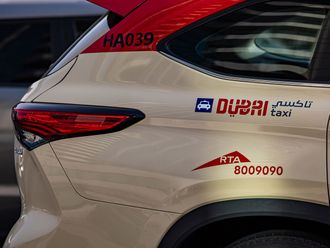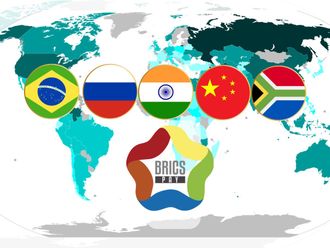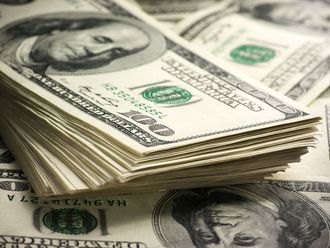Earlier in the month, Oxford Business Group (OBG) issued a uniquely kind report regarding economic performance in Bahrain. The report depicts a rosy picture of the kingdom's economic prospects.
By virtue of its collaboration with the Economic Development Board (EDB), the report largely provides views to the liking of authorities. But it is worth noting that the EDB is sanctioned to develop and implement Bahrain's economic strategies.
Understandably, the report suggests that Bahrain is determined to strengthen its position as a global hub for Islamic banking. In reality, Bahrain is already regarded as a leading regional centre for Islamic financial institutions. The drive makes sense, as the financial services sector compromises nearly 27 per cent of the country's gross domestic product (GDP) in current terms, even larger than crude oil and gas.
In retrospect, Islamic financial institutions stand behind the ambitious project of Bahrain Financial Harbour (BFH). The investors selected a rather clever name for the scheme, indirectly suggesting it enjoys state backing. Yet, BFH and Bahrain's financial sector at large is facing regional rivalry from other regional financial initiatives. Reference is made to Dubai International Financial Centre (DIFC), Qatar Financial Centre (QFC) and in the near future King Abdullah Financial District.
To its credit, Bahrain led fellow Gulf Cooperation Council (GCC) countries in labour reforms. Specifically it implemented a law in 2009 that grants foreign workers the right to change sponsors. To be sure, certain conditions must be met for change to take place including not receiving salaries for a certain period of time.
Labour challenges
Nevertheless, it is too early to draw conclusions about the success of the scheme. Among other challenges, Bahrain's labour issues include containing unemployment in the local population that stands at around 4 per cent, according to official statistics.
Unfairly, the report overlooks fresh developments when talking about Bahrain's credit rating. All the focus is on A rating granted By Standard & Poor and Fitch. Yet, there is hardly any mention of Moody's recent decision to downgrade Bahrain's sovereign rating by a notch from A2 to A3.
Among others, Moody's move reflected worries about oil prices to break even in balancing the state budget. The price increased from $30 (Dh110) per barrel in 2004 to $80 per barrel in 2008.
This price leaves Bahrain with little flexibility, as it already supersedes current rates in international markets.
Ironically, the report fails to take into account actual views of EDB, in turn main sponsor of the publication, whilst appreciating near absence of inflationary pressures.
It put average inflation rate in Bahrain at 5.2 per cent against more than 9 per cent in other GCC states in 2008. The fact is, part of the credit relates to governmental subsidies extended to goods, namely red meat, flour , chicken, petroleum products, and utility services.
The EDB supports limiting subsidised prices for the most needy segments of the population. Currently all those living or visiting Bahrain have access to subsidised goods.
Arguably, there are solid economic arguments for limiting subsidies, which are currently estimated to cost the government around $1.3 billion, undoubtedly a sizable amount for a country that boasts nominal GDP of $21 billion (Dh77 billion).
Leaked report
Not surprisingly, Bahraini nationals reacted angrily in 2009 following a leaked report appearing in the Arabic daily Al Wasat warning of a minimum 25 per cent rise in prices of petroleum products subjected to subsidies. For instance, the price of premium fuel oil is fixed at $0.26 per litre for all.
Last but not least, OBG reports on Bahrain must allow alternative views in order for them to be balanced and comprehensive. This could take place as early as the 2011 report.
The writer is a Member of Parliament in Bahrain












